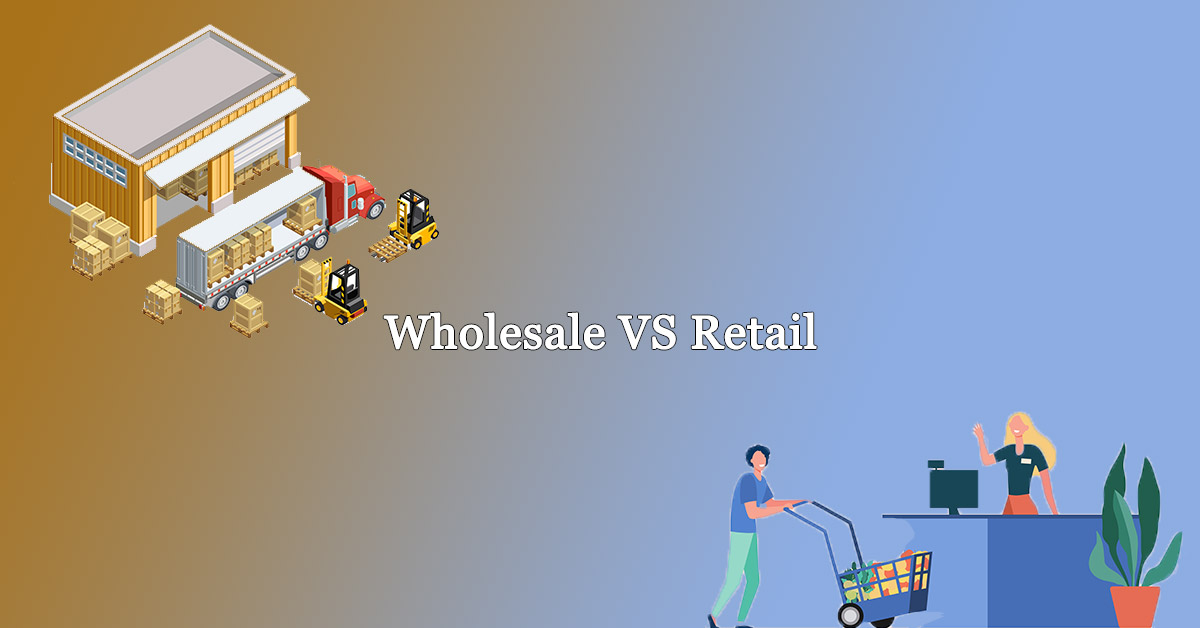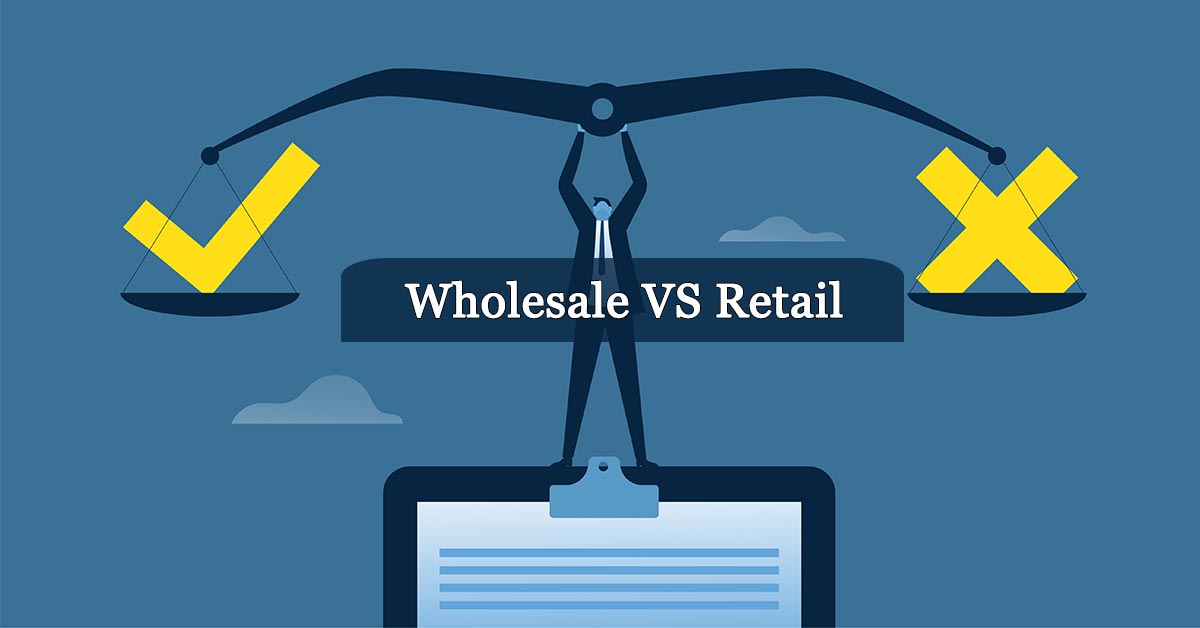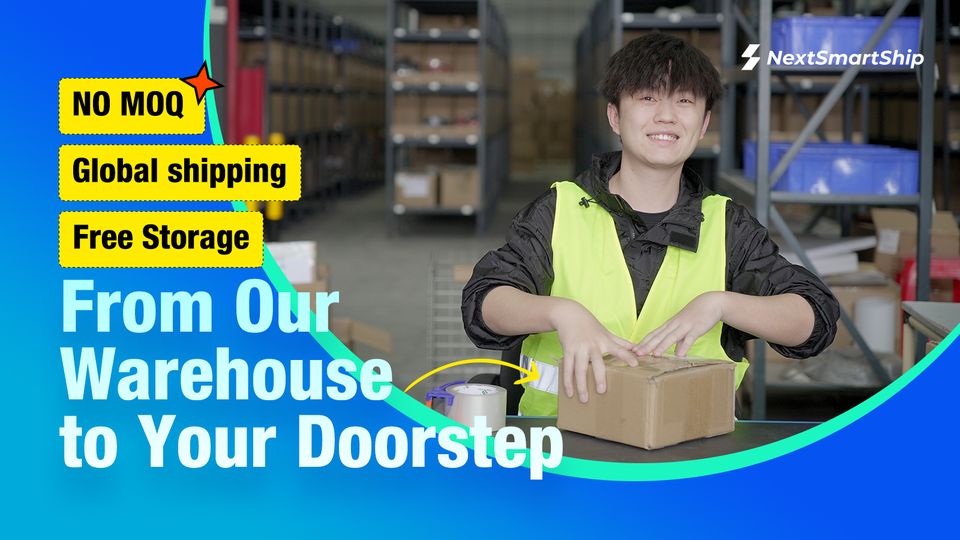This blog intends to explain the difference between wholesale and retail in terms of the sale of goods, commodities or services. This shall be done by explaining what each term is and what makes them different.
This distinction maybe necessary to help you understand what you may choose to go with if you are intending to go into business as a trader, supplier or generally business.
This will also apply to buyers as it will help you make an informed decision as to choose which type of agent you would want to buy from, depending on your budget, needs and availability of each in your region.

| Table of Content |
What does “Retail” Mean?
Retail can simply be defined as the practice of taking goods from a wholesaler and selling them to the end or final consumer in small quantities. Think of it as the process of your local supermarket or store selling you one loaf of bread as the final consumer.
General concept of Retail selling.
The concept of retail selling can generally be explained like this. The goods come from the manufacturer to a distributor or wholesaler in larger batches.
The manufacturer or factory is the producer of the goods. From there, the goods are then bought by a wholesaler, who will resell them or distribute them in a particular region.
From here, the retailer e.g., your local supermarket will acquire them and then resell them to you, the final consumer.
To summarize, retail stores are generally characterized by;
- Having commodities available for sale in small quantities.
- Accessible to most consumers easily
- Having a wide range of products to choose from
Below is a common image of a retail store or outlet.

What does “Wholesale” mean?
Wholesale or wholesale distribution can simply be defined as the process of taking goods from the manufacturer in large quantities or batches and selling them to a retailer for a profit.
This is basically where your local depot buys goods from the manufacturer in large quantities, stores them in their warehouse, and then sells them in smaller batches to the retailers that come to them in order to sale in their stores.
A wholesaler can also be simply explained as where your local store resupplies from when their stock runs out.
General Concept of Wholesale.
As briefly explained above, what happens in wholesale distribution is that, the producer makes the goods and puts them into batches, the wholesaler then approaches the producer and buys the goods off him usually at a lower cost than an individual would. This is made possible because the wholesaler buys in extremely large quantities.
The wholesaler then transports the goods to their region, where they store them in their warehouses. From here, the wholesaler will then resell the goods at a profit to the various retailers in the region and transports the goods from their warehouses to the retail outlets’ storehouses.
Wholesalers can also be known as the distributors of a certain commodity in an area or region or even an entire country. They buy goods in large quantities and can store them for upto months or years.
Therefore, wholesale distribution is characterized by;
- Buying goods in large quantities from a manufacturer
- Transportation and storage of goods in warehouses
- Reselling of commodities to retailers.
Below is an image of a wholesale business warehouse.

What is the difference between a wholesaler and a retailer?
A wholesaler is one who will buy goods in very large quantities from a manufacturer, at a lower price, transport and store these goods in their area of choice where they will resell them, at a profit to the retailer.
A retailer on the other hand, will then buy the goods in substantial quantities from the wholesaler, get them from the warehouse and take them to their retail unit or into their storage unit. From there, they will sell them to the final consumers in much smaller quantities also at a profit.
So, what is the major difference between them?
- Wholesaler sells to the retailer while the retailer sells to the final consumer
- Wholesaler buys from the manufacturer while retailer buys from the wholesaler.
- Wholesaler acquires the goods at a lower price while the retailer acquires the goods at a higher price.
- Wholesaler transports from the manufacturer while the retailer transports from the wholesaler.
- Wholesaler deals in extremely large quantities while the retailer deals in moderate quantities.
What advantage does Wholesale have over Retail or vice versa?

Starting with the wholesaler, he acquires the goods at a much lower price than the retailer because he buys in large quantities from the manufacturer.
The wholesaler then resells these goods to retailers at a slight margin. However, because he sells to various retailers, he makes a good profit.
In addition, having bought the goods at a relatively low price, the wholesaler can store the goods in lean times and resell the goods when prices rise higher in order to make more profit. In this way he can have a big advantage over the average retailer who will need to move their stock quicker in order to realise their profit.
With the retailer, he acquires the goods from the wholesaler at a marginal price then resells at a high price to the final consumer. In this way he makes a good profit.
In addition to that, since the retailer usually serves a small market and with moderate quantities, he is able to quickly move all of his product from the shelves of the retail outlet in short time and realise his profits quicker than a wholesaler.
And finally, since he acquires a much smaller quantity of products than the wholesaler, in case of product failure, he does not incur as much loses as a wholesaler will.
So, in a way, each has their own advantages over the other. As a person intending to enter the business world as a trader, you can choose one or the other depending on what is more appealing to you in order to grow, manage and sustain your business.
What is fulfillment cost or warehouse cost for Wholesaler or Retailer?
This can simply be described as the total amount of money that you as a wholesaler or retailer will incur when transporting your products from the manufacturer, storing them and then distributing them to the retailer for the eventual sale to the final consumer.
How to manage your inventory orders with NextSmartShip’ s system.
As mentioned above, transporting of large quantities of goods from the manufacturer to the end user or consumer involves a lot, both financially and logistically, especially if you are sourcing your goods from overseas.

Get Custom Solutions
With the NextSmartShip fulfillment service, this process is streamlined for you. Using the latest in software, storage, loading and transportation technology, the NextSmartShip fulfillment centre handles the bulk of the process for you, leaving you worry free and able to concentrate on your other projects.
How does this work?
First, you set up your account with NextSmartShip where you will be assigned a dedicated account manager.
Then the NextSmartShip software will then be integrated or connected to your website or online store and start receiving your customers order directly for fulfillment.
To make this much easier to do, you’re required to send your inventory any of the NextSmartShip warehouses worldwide in order for them to be safely stored and ready to be fulfilled. With the system software, you can easily keep track of inventory quantities.
After a customer places an order, it is assigned to the closest fulfillment centre where we can also do labelling, kitting or personalisation of any kind according to your request.
After the order is dispatched, a tracking number is sent to your customer. You can easily monitor the order shipping status and update your inventory levels accordingly, all through the NextSmartShip software dashboard.
Conclusion.
In Conclusion, wholesale and retail are the two sides of the logistics side of a business that involve the buying, transport, storage and eventual sale of your commodities from the manufacturer, all the way to the final consumer.
However, this process is usually long and tedious and with the advancement of technology in the world and the come up of online business, you may have customers from all over the world ordering your products.
If you are located far from your customers, delivering a very small quantity of products by yourself is not sustainable or a sound business move. So in order to ease your inventory and delivery worries, the NextSmartShip fulfillment service steps in here for you, in order to make it easier to fulfil your orders to any part of the world, in a timely manner to keep your business running smoothly.
Get Custom Solutions

